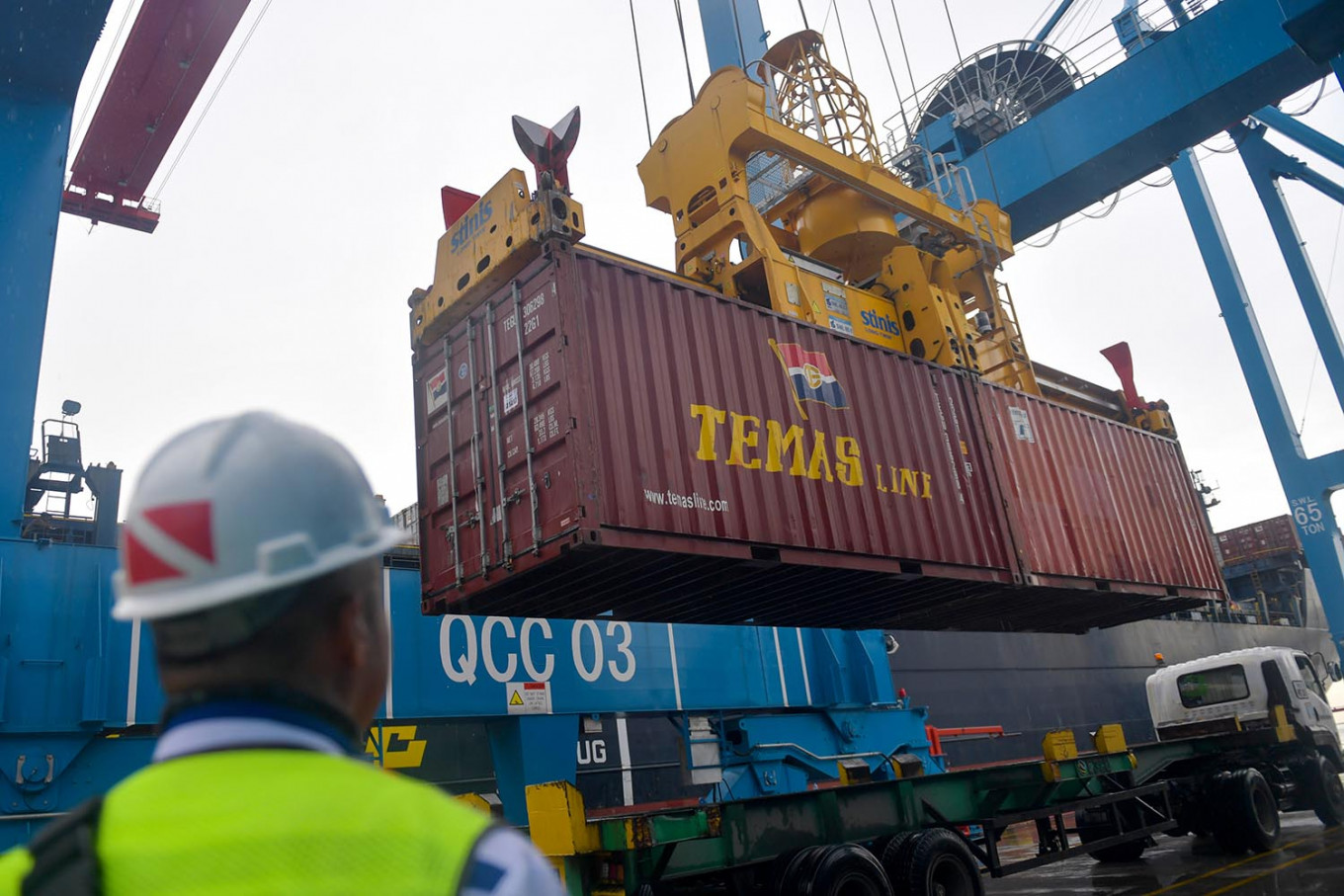Popular Reads
Top Results
Can't find what you're looking for?
View all search resultsPopular Reads
Top Results
Can't find what you're looking for?
View all search resultsIndonesia relaxes trade rules to cushion COVID-19 effects
Finance Minister Sri Mulyani Indrawati said on Wednesday that the government plans to reduce the number of restricted import goods by up to 50 percent to spur business activities that have been hurt by the COVID-19 pandemic. As many as 749 harmonized system codes are to be scrapped, she added.
Change text size
Gift Premium Articles
to Anyone
I
ndonesia plans to relax restrictions on importing goods as one of its fiscal measures to combat the harmful economic effects of the COVID-19 coronavirus.
Finance Minister Sri Mulyani Indrawati said on Wednesday that the government plans to reduce the number of restricted import goods by up to 50 percent to spur business activities that have been hurt by the COVID-19 pandemic. As many as 749 harmonized system codes codes are to be scrapped, she added.
“This aims to ease the importation of raw materials amid the spread of the coronavirus,” Sri Mulyani told reporters in Jakarta after a ministerial meeting.
Items included in the list of restricted import goods include ceramics, soybeans, corn, textiles and textile products, vaccines, health equipment, telecommunication tools and equipment, footwear and food supplements, among many others, according to the Customs and Excise Office website.
The government is to also relax regulations related to the Food and Drug Monitoring Agency, Sri Mulyani said without revealing more details.
Read also: Indonesia set to delay import duties, corporate income tax payments to cope with virus effects
Manufacturing industries have complained of disruptions to their supplies of raw materials that have crippled factories across Indonesia. Twenty to 50 percent of raw materials for the country’s industries are usually sourced from China, Indonesia’s biggest trading partner.
Coordinating Economic Minister Airlangga Hartarto said the government also plans to integrate the online Indonesia National Single Window system using Inaportnet to make logistical systems more efficient. “We are still finalizing it,” he added.
The government is preparing several stimulus packages, including one that would expedite the import process for 500 importers with good reputations and another to reduce logistics costs in ports across the country.
The Asian Development Bank (ADB) previously said Indonesia might not be affected severely by the global health emergency, thanks to its minimal exposure to global trade and its wide room to maneuver in monetary policy.
“Indonesia isn't deeply integrated in the global supply chain, so it is still considerably fortunate compared to other countries,” newly appointed ADB president Masatsugu Asakawa said. He added that the Indonesian economy, which was primarily driven by domestic activity, had an advantage during the global health emergency.
Read also: Full salary: Manufacturing workers freed from six-month income tax burden
Indonesia is heavily dependent on domestic demand, with household consumption growing 4.97 percent year-on-year in the fourth quarter of 2019 to account for more than 50 percent of gross domestic product.
The government unveiled a Rp 10.3 trillion (US$717.87 million) fiscal stimulus package to support the tourism industry and boost consumer spending to counter the economic impacts of the coronavirus outbreak. At least 34 individuals in Indonesia have tested positive for COVID-19 and one has died.
The World Health Organization declared the coronavirus to be a pandemic as the outbreak has shuttered factories, disrupted travel and supply chains, delayed conferences and sporting events and infected more than 120,000 people worldwide. More than 4,600 people have died globally.










